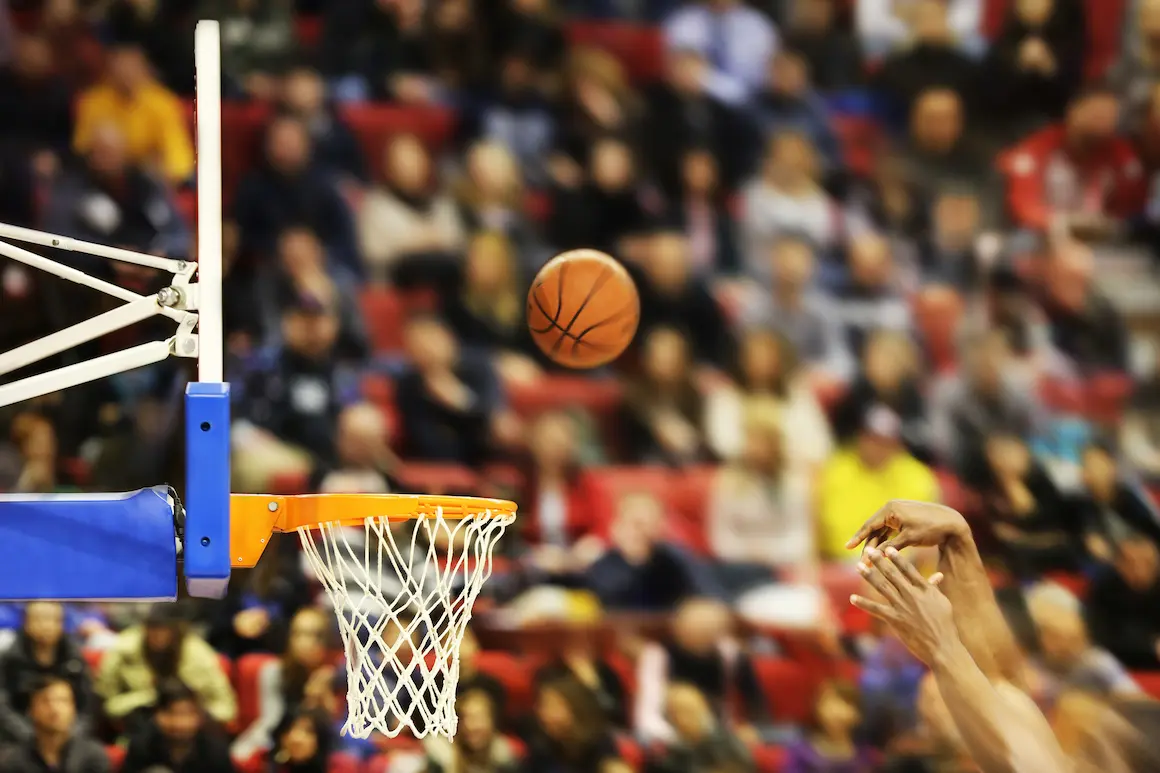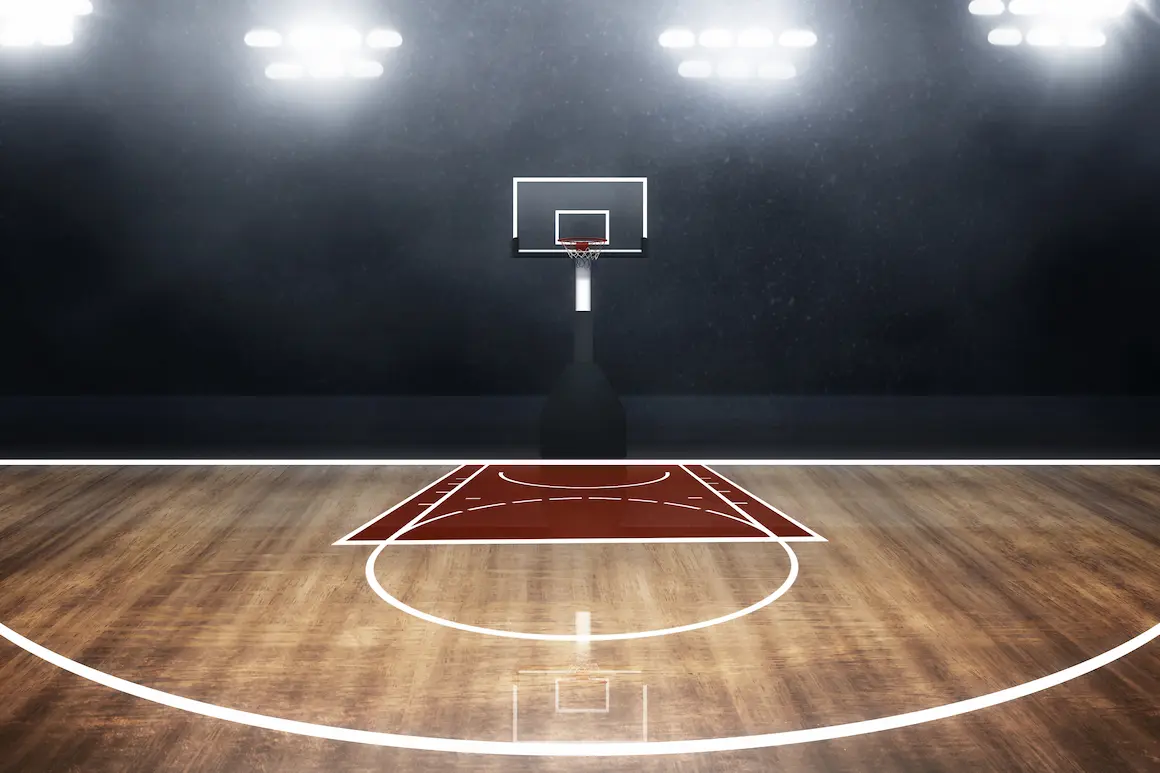For a small Baltic country, basketball is an important component of national self-identification. Jokes about the fact that on a desert island Lithuanians need only a basketball, baskets for the ball they will make themselves, do not seem like such a joke.
Historical fact: in the Siberian camps, exiled after the annexation of Lithuania by the Soviet Union, Lithuanians played basketball! In the documentary American-Lithuanian film «Another dream-team» Arvydas Sabonis sets the exact date of the beginning of the basket-boom in his country: the home championship of Europe in 1939, where the Lithuanians got «gold». At the same time, the «Sporthalle» arena (the first specialized basketball arena in Europe) was built. Of course, it’s difficult for people of my generation to judge this or that boom of 80 years ago, but I know about the crazy popularity of basketball in Lithuania since the 1980s. And the architect (someone called differently: “Good pastor”) of that particular boom (the founder of the Lithuanian playing style – team work , quick passes, when rivals literally have their heads spinning) is just the current hero of the day. “Everyone plays basketball. This is our system!» – this is what Garastas says about the current Lithuanian realities. Is it difficult to identify the top ten Garastas pupils? Let me put it this way: the five are clearly visible, and then there are some possible options. Anyway, it’s a great reason to remember the Lithuanian basketball stars and rank them.
Arvydas Sabonis (born 1964).

Of course, the best of the best is Arvydas Sabonis. As it is written in the book «Basketball. Epoch of V. Shablinsky» Zurab Chromayev and Anatoly Voloshin: «Sabonis… could do everything on the court… His passes were effective and beautiful…he could dribble around any defender… He created many moments to defeat the ring by others». I will add that Sabas possessed rare skills- an accurate shot with a long and medium distance.
This man symbolized as «Zhalgiris» of the 1980’s: desire to win, stubbornness. But there was something that made him different from his team mates. As I noticed he was more emotional than any other player in a white-and-green t-shirt. The role to be in the center of everyone’s attention: rivals, judges, viewers, media.
And this is an extra moral strain that no matter how brutal you are as a man, you still have to deal with. What if you’re also the youngest guy on the team? Anyway, Sabas always emphasizes the special role of Garastas in his development as a world-class player. « Sabonis was sent to us by God! Such players are born once in a century!» – famous words of Garastas.
Of course, when at the age of 17 you become a world champion (debuted in the major Soviet league just a year before) and you are basking in the glory, it is difficult not to lose ground under your feet. Thanks to Garastus, Sabonis withstood this pressure and increased his achievements. He has the “gold” of the European Championship, and the “gold” of the Olympics, 6 medals of a less valuable standard at large tournaments(“bronze” of the Olympics-92 – the first under the Lithuanian flag, according to Sabas, is stored “in our soul”), championship titles in the USSR, Spain and Lithuania, some personal prizes ( Sabas was awarded 4 times as the sportsman of the year in Lithuania and 6 times as the best player in Europe, 15 years passed between the first and last title!). By the way, Sabonis was saying many times that the Olympic «bronze» in the Lithuanian team is more valuable for him than «gold» in the USSR team. This caused a not too favorable reaction in Moscow. In the final of the Intercontinental Cup in 1986, Sabonis made a decisive contribution to the success of the white-green (84:78) with 26 points.
Career in the NBA? Yes, Sabonis played «Portland Trail Blazers» in the second half of the 1990s – in the early 2000s. Sabonis didn’t get any new titles overseas. Interesting fact that 16-year-old Arvydas started his playing career in «Žalgiris» and finished it at the age of 40 in «Žalgiris» as well. After the post game period, Sabas headed the Lithuanian Basketball Federation, raised with his wife Ingrid (by the way, «Miss Vilnius-1988») four children ( Arvydas should become a grandfather in the near future), now saying : «Every person comes a time when he has to live for himself».
Valdemaras Chomicius (born 1959)
90% of viewers in Moscow during the super finals with CSKA in 1980’s were supporting «Zhalgiris», – Khomichus told me that in an interview about seven years ago, when he worked as head coach of «Dnepr». Yes, I remember it well. “Captain of a Great Team” is the name of the book of the famous champion, which was published at the beginning of this century. Indeed, the captain in Garastas’ team played a big role, and not only on the court and in the locker room. The teammates called Khomichus a man who was able to benefit from trips abroad in Soviet times – they said that he knew where to get, how to smuggle and how to sell equipment, scarce for the Union things.
Khomicius says: «I know they will call me the leader in this plan, yes, we all did it ». As part of the Soviet team, Khomicus became the Olympic champion, world champion, twice European champion, European champion among juniors, champion of the Universiade. Teams of Garastas three times got Sovet «gold», once Intercontinental Cup, and in 1992 Olympic «bronze». At the end of his playing career he became a skilled coach. Apart from «Dnieper», he worked in Ukraine and with «Budivelnyk», although, as he admitted to me in an interview, he still considers «cabinet defeat» «Zhalgirisa» unfair from our countrymen in the 1989 USSR Championship. However, here our opinions with the captain of the great team differ.
Sarunas Marciulionis (born 1964)
«The Warrior!» – This is how Marchulenis calls Jovais. As for me, truer words were never spoken! The attacking defender, originally from Kaunas, has never played for «Žalgiris». His team is from Vilnius «Statiba». His team is from Vilnius «Statiba». But with Garastas Sharunas worked already in the national team of independent Lithuania, twice learned the taste of Olympic «bronze», once – European «silver», being already an NBA player. Speaking of his career, Sharunas states: «The road has never been straight!»
But he passed it with dignity, having played in the NBA for eight years. This wouldn’t have been possible without a strong character. At one time, the words of Marciulionis were widely circulated that he didn’t want to be “a chess pawn in the game between the USSR State Sports Committee and Ted Turner”. Four times Marchulenis was named as the best sportsman of Lithuania. At the end of his playing career, he was a member of the European Parliament and invested funds in his own basketball school.
Sergeius Yovaisha (born 1954)
«The most colorful person in the Lithuanian team» was named by journalist Igor Fein in the book «Arvydas Sabonis». The local newspapers of the 1980s called him a «brain center», «sly fox», «long-sleeved beast», «killer of favorites»! Sabonis, answering the journalistic question “who is the best to play with”, answered: “With Syanas” (Yovaishu was called in the team). Jovaisha began his playing career even before Garastas took over “Zalgiris”, but he showed his talent under the guidance of the Lithuanian basketball guru.
«I was lucky, Jovaiša said in an interview, that at different times I played with two of the best basketball players of Lithuania of the Soviet era – Modestas Paulauskas and Arvydas Sabonis». «Intelligent and cunning player, who read the game perfectly. And he had strong nerves», – says about Jovaish Valdemaras Khomichus.
Even before the arrival of Garastas to the coaching bridge of “Zalgiris”, Yovaish became a player in the USSR national team, and in 1978 he won the “silver” of the world championship. And later he became both the European champion (twice) and the world champion. Unfortunately, he didn’t get the Olympic “gold”, since in 1988 he was no longer called up to the USSR national team, but in 1992 he helped his native Lithuania become the bronze medalist of the Barcelona Olympics. Undoubtedly, Sergeyus made a significant contribution to the championship hat-trick of Kaunas team in the USSR championship in the mid-1980s. and in winning the Intercontinental Cup in 1986. The uniqueness of Yovaishi is also in the fact that he twice became the silver medalist of the World Universiade as part of the USSR student team (Syanas has two degrees – diplomas of the Kaunas Polytechnic and Lithuanian Institute of Physical Culture).Yovaishi’s famous quote: «We say loudly that basketball in Lithuania is the second religion. Through basketball we could show our strength!». In the post-game period, he worked in television, at the mayor’s office of Anykschay, tried himself in cinema, and since the beginning of the 2010’s Yovaisha was elected as a member of the Seimas of the Republic of Lithuania. The best way to characterize this person is perhaps his most favorite phrase: “Life has taught!”
Rimas Kurtinaitis (born 1960).
Kurtinaitis says about the coaching style of Garastas: “Until he checks you 9 times, he won’t let you out.” There were different things in the relationship between the coach and the player, but Kurt highly appreciates the psychological help of Garastas in the most difficult periods of his career. In the early 1980s, Rimas became the champion of the USSR as part of … CSKA, and only in 1982 did he make his full debut in the team of his native city – Zalgiris (“I came from the other side, they took me as a champion,” as Curtinaitis himself noticed with a smile years later). Kurt became one of Garastas’ team leaders. This point guard was distinguished by the exceptional accuracy of distant shots and an extremely stubborn basketball nature. He played a significant role in the victorious hat-trick «Žalgirisa» in the mid-1980s in the USSR Championship and in the conquest of the white-green Intercontinental Cup in 1986. In the 1980s as part of the USSR national team became the European champion, the Olympic champion, vice-world champion, but the greatest emotion causes him to remember the Olympic «bronze»-1992 as part of the Lithuanian national team. During an interview for the movie “Another Dream Team”, Kurt could hardly hold back tears, remembering that tournament. It is noteworthy that at the end of his playing career, Kurtinaitis also played in Ukraine – as part of BC Kyiv. Subsequently, for a long time he worked as a trainer in different countries, and held a position in the government structures of Lithuania. “If a sportsman wants to be great, he should not be afraid to take risks in difficult situations,” these words of Kurt from one interview are like a road sign for young basketball players!
Arturas Karnishovas (born 1971).
This small forward has earned the nickname “Silent Killer” in Europe for his ability to score a good two dozen points per game in a seemingly low-key style.
Arturas was born in Klaipeda in a basketball family. He knows Soviet basketball a little, but did not play in «Zalgiris», he defended the colors of the Vilnius «Statiba». Later he entered an American college, not knowing English. However, in the NCAA he had the opportunity to hone his basketball skills.
Under the leadership of Garastas, Karnisovas twice won the Olympic “bronze” and became the vice-champion of the Old World. In 1996, he was awarded the title of FIBA European Player of the Year. At the club level, he played in France, Spain, Greece and Italy. At the end of his playing career, he held many managerial positions in the NBA and in a number of clubs in this league. He currently lives in Chicago and works as vice president of basketball operations for the Chicago Bulls.
Gintaras Einikis (born 1969)

Was born in Kretinga and made his debut in “Žalgiris” in 1987. The young center was supposed to replace Sabonis and he worked hard to achieve a great goal. He never managed to become the champion of the USSR (in particular, in 1989, “Budivelnyk” from Kyiv became an obstacle to champion ambitions), but Einikis collected three Olympic bronze medals in his collection (two of them under the guidance of Garastas). He was an important part of the Garastas team and at the 1995 European Championships, where Lithuania took second place. Under the curtain of the game career he became a figure of several scandals (a fight in a nightclub, alcohol, drugs, threatening to kill his girlfriend). Gintaras’s coaching career never really takes off.
Gintaras Krapikas (born 1961).
Krapikas shot at the European Junior Championships in 1980. – victorious for the USSR. The Lithuanian became the second most effective in the Soviet team. The native of Kretinga spent all the 1980’s in «Žalgiris». Years of his performances for the club exactly repeat the years of work of Garastas. Krapikas is a player who can be considered as the creature of Garastas. And almost all their playing titles (three championships, victory in the Intercontinental Cup, Olympic «bronze», «silver» European championship) Krapikas won under the guidance of Garastas. «He competently built us, directing our energy in the right direction», – Krapikas said about his couch. Turning to coaching, Krapikas applied his deep understanding of basketball to the national team. He was a member of the coaching staff of the Lithuanians at the «bronze» Olympics-2000 and at the winning European Championships-2003. He also has a Ukrainian page in his coaching biography, because in the early 2010s for a short time Krapikas worked as coach at “Azovmash” in Mariupol. «Stay in basketball as long as possible, and then become coaches!» – such advice is given by Krapikas to his current pupils.
Algirdas Brazis (born 1962).
During his playing career, Brazis played only in two clubs: “Litkabelis” from Panevezys and “Zalgiris” from Kaunas. As part of the Kaunas grande he wasn’t tall enough by basketball standards (190 cm) but spent 13 years! It was an important part of Garastas’ gold team in the mid-1980s. However, unlike many players of «Žalgirisa» he didn’t go to play abroad, he stayed at home. As a result, he added two Lithuanian champion titles to the three Soviet champion titles. Like most of Garastas’ pupils, Brasis became a coach. He had a coaching attitude to the victory of “Zalgiris” in the Euroleague in 1999 and worked at the Ukrainian “Azovmash”.
Raimundas Civilis (1959–2000).
A native of Panevėžys, typical «one club man», played in «Žalgiris» since 1977. However, fully revealed his talent only with the arrival on the coaching bridge in 1979. (Garastas). The new coach immediately believed in this energetic man and found him a place from the start. Vladimir Gomelsky in his book «How to play basketball» describes Civilis as a player of «huge physical strength, but weak in technical terms». In fact: they even called him «semi-finished product»! Anyway, it was Garastas who made Civilis a real star. Sabonis played an important role in the growth of Raimundas’ individual skills. Sabas distracted the player who was supposed to be holding Chivilis, and as a result, Raimundas was able to hit the ring almost unhindered. This tactical find of Garastas was a real success, for example, in the 1984/85 season, Chivilis doubled the average number of points scored per match. After that he turned into one of the leaders of Garastas’ team. “The technical equipment of one player helped another to open up,” concludes Vladimir Gomelsky. Unfortunately, the post-game fate of Raimundas was tragic, and he died of tuberculosis at the age of 41.
***
“We have good basketball genetics, as in Lithuania,” these words of the famous Latvian basketball player Valdis Valters certainly correspond to reality. It is indicative that speaking of his homeland, in the appropriate context, he also remembered his neighbors-competitors. Sabonis believes that Lithuania became sick with basketball back in 1939, I would venture to say that without the hard work of Garastas in the 1980s. basketball wouldn’t have turned into a religion in this Baltic country. “Zalgiris” has always been strong, first of all, in spirit, ”said basketball observer Igor Fein.
However, the spirit does not arise by itself, there must be a person who nurtures the spirit of the team. “You are playing for the people of Lithuania. Forget about personal ambitions. People forget about sleep, look at you with hope!» – Garastas set his players to fight for 3rd place at the Olympics-92 against a team that had some wonderful name and consisted of post-Soviet players. The crazy popularity of the «eighth wonder of the world» (remember the film with this name – the beautiful advertising of basketball) in Lithuania since the coaching work of Garastas does not go down. And the system, which was discussed at the beginning of the material, constantly gives its fruit! That is why «other dream-teams» are born.
He/Him
19
349 articlesKristaps is an expert in the field of online casinos. Since the age of 20, he has been interested in casino games; poker and blackjack are his favorites. Thanks to his studies and work experience, he has found himself a gambling critic and analyst. He likes to share his own authentic experience with the audience, so his articles are very informative. Kristaps' lifelong dream is to participate in a poker tournament in Las Vegas.
Nationality
latvian
Lives In
Latvia
University
University of Latvia
Degree
International Marketing and Advertising
More info on Kristaps Gauja






 kristaps.gauja@casinobaltics.com
kristaps.gauja@casinobaltics.com 
